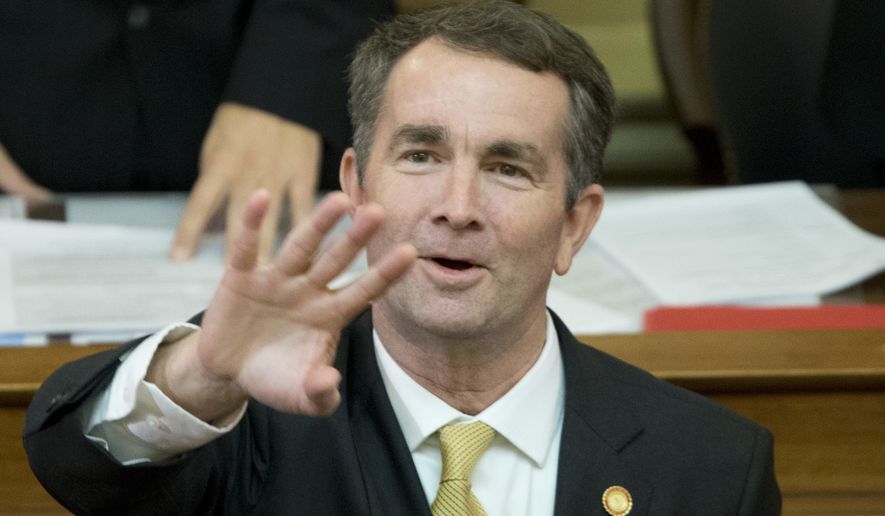The Virginia Senate voted to accept Obamacare money to expand the state’s Medicaid program, and the state House was aiming for passage later Wednesday, looking to end an eight-year GOP blockade and deliver a major win to Gov. Ralph Northam and Democrats.
Senators voted 23-17 to approve a $115 billion, two-year budget that includes the expansion, which would add 400,000 lower-income residents to the Medicaid rolls.
The plan would require the newly eligible people to seek work as a condition of getting benefits — a key goal of state Sens. Frank Wagner, Emmett W. Hanger Jr. and Ben Chafin, the Republicans who broke the years-long deadlock to join Democrats in approving the expansion.
“I’m thrilled that the Virginia Senate has decided partisan politics should no longer stand in the way of thousands of Virginia families getting the healthcare they need,” said Sen. Mark Warner, a Democrat.
Democrats had been pushing for Virginia to join 32 other states that accepted Obamacare money to expand the state-federal health program for the poor.
But former Gov. Terry McAuliffe, a Democrat, faced a wall of opposition from Republicans who controlled the Senate, had an overwhelming majority in the House and said they feared expansion would bust the state’s budget in future years.
After Mr. Northam won a resounding victory in November and Democrats picked up 16 seats in the state House, the politics shifted.
“There are these definite examples … of how elections have made a difference,” said Robin Rudowitz, associate director for the program on Medicaid and the uninsured at the Kaiser Family Foundation.
Louisiana Gov. John Bel Edwards, a Democrat, initiated Medicaid expansion in his state in mid-2016 after defeating then-Sen. David Vitter in the 2015 gubernatorial election. Pennsylvania Gov. Tom Wolf initiated expansion in 2015 after defeating an Republican incumbent.
In Maine, voters opted to expand Medicaid coverage in 2017, though Republican Gov. Paul LePage has stood in the way of its implementation until state lawmakers find a way to pay for the state’s share of the cost.
Mr. Northam hopes to implement Medicaid expansion by January 2019. He said the windfall of federal funding will help them battle the opioid crisis and compete with other states that are drawing down federal-taxpayer dollars that support health care sector.
“From a business perspective, it makes absolutely no sense [not to expand],” Mr. Northam told WTOP Radio.
The expansion will cover those making up to 138 percent of the federal poverty level. Virginia will pick up 7 percent of the costs of that expanded population next year, rising to 10 percent in 2020 and beyond.
Republicans predicted those costs eventually will swamp the budget.
“This will throw our state into financial instability and will hurt the poor who will have to compete for health care resources with able-bodied people,” tweeted state Sen. Dick Black, a Republican.
Part of Wednesday’s compromise is that Virginia will request a waiver from the Trump administration that requires newly eligible residents to seek work as a condition of their benefits. The GOP rebels had demanded that concession, and Democrats were forced to accede in order to win passage.
“We’ll do everything we can to help people get back into the workforce,” Mr. Northam said.
The plan also imposes a provider tax on hospitals to help pay for the state’s share of Medicaid funding. Backers said hospitals are poised to get a big windfall from federal dollars that will convert uncompensated-care costs for treating the uninsured to reimbursements for taking care of covered residents.
• Tom Howell Jr. can be reached at thowell@washingtontimes.com.




Please read our comment policy before commenting.